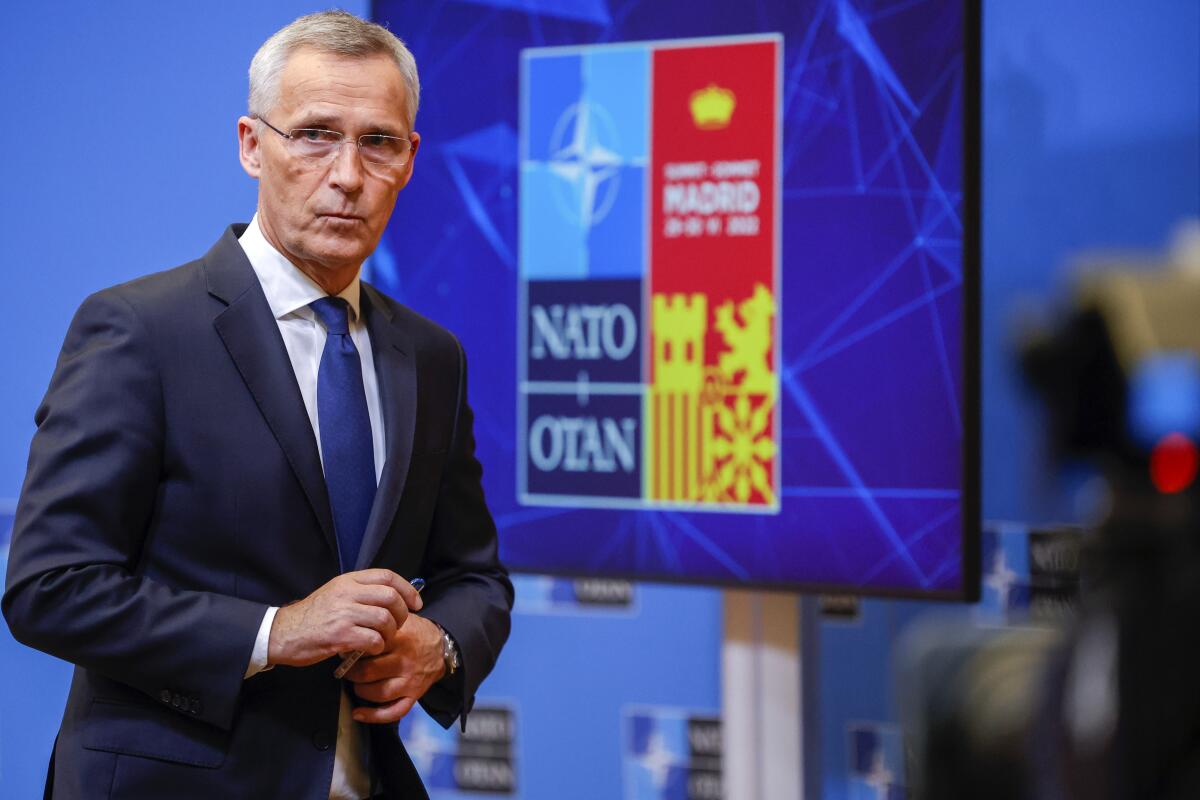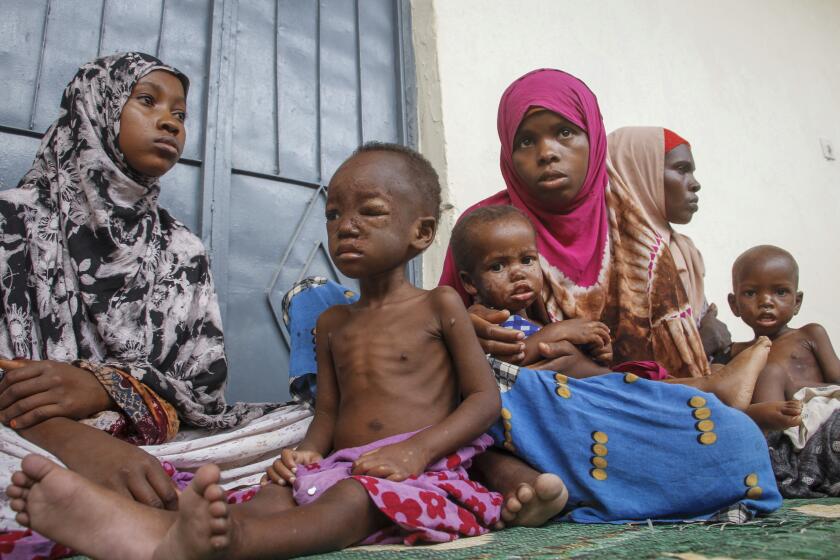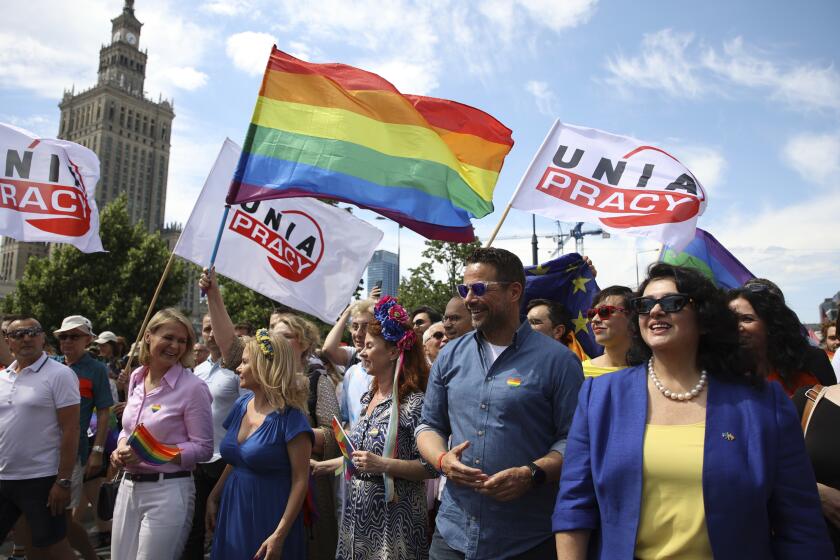NATO to boost rapid-reaction force, Ukraine military support

- Share via
BRUSSELS — NATO will increase the strength of its rapid-reaction force nearly eightfold to 300,000 troops as part of its response to an “era of strategic competition,” the military alliance’s secretary-general said Monday.
The NATO reaction force currently numbers around 40,000 soldiers who can deploy quickly when needed.
Coupled with other measures such as the deployment of forces to defend specific allies, the move is part of the “biggest overhaul of collective defense and deterrence since the Cold War,” NATO Secretary-General Jens Stoltenberg said.
He made the remarks at a news conference ahead of a NATO summit later this week in Madrid, at which the 30 member nations are expected also to agree on further support for Ukraine in its war against Russia.
Stoltenberg said he expects allies to make clear they consider Russia to be “the most significant and direct threat to our security.”
In NATO’s new strategic concept, the alliance is also expected to address for the first time the security challenges posed by China, Stoltenberg said. In Madrid, allies will discuss how to respond to the growing influence of Russia and China in their “southern neighborhood,” he added.
Leading foreign ministers meet to confront global food insecurity crisis, facing conflict, climate change and COVID. Millions could die.
Stoltenberg said the allies would agree to deliver further military support to Ukraine when they convene in Spain, with NATO members set to adopt a “strengthened comprehensive assistance package,” including deliveries of secure communication and anti-drone systems.
Over the long term, Stoltenberg said the alliance aims to help Ukraine transition from Soviet-era armaments to modern NATO equipment. The world’s seven leading economic powers underscored Monday their commitment to support Ukraine for “as long as it takes.”
Another central theme at the NATO summit will be the possibility for Finland and Sweden to join the alliance.
NATO member Turkey has so far blocked the applications, citing what it considers to be the two countries’ soft approach to organizations that Turkey considers to be terrorist, such as the Kurdistan Workers’ Party, or PKK.
KyivPride moved to Poland this year and was a platform to keep international attention focused on Ukraine’s struggle against Russia.
Turkey is demanding that Sweden and Finland grant extradition requests for individuals who are wanted by Turkish authorities. Ankara claims the countries are harboring PKK members as well as people it says are linked to a failed 2016 coup.
Turkey also wants assurances that arms restrictions imposed by the two countries over Turkey’s 2019 military incursion into northern Syria will be removed.
Stoltenberg said that Turkish President Recep Tayyip Erdogan, Finnish President Sauli Niinisto and Swedish Prime Minister Magdalena Andersson have agreed to meet on the sidelines of the summit.
“We have worked hard since Finland and Sweden applied for membership to ensure that they can join the alliance as soon as possible,” Stoltenberg said. “I will not make any promises, but I can assure you that we are working actively to ensure progress because the application of Finland and Sweden to join NATO, they are historic.”
More to Read
Sign up for Essential California
The most important California stories and recommendations in your inbox every morning.
You may occasionally receive promotional content from the Los Angeles Times.















